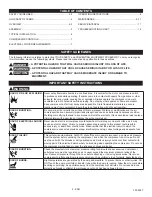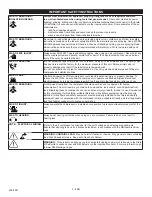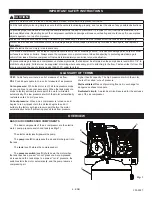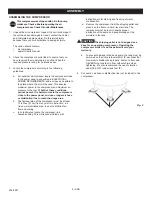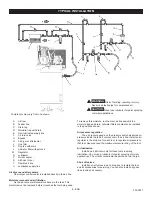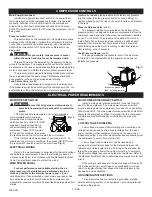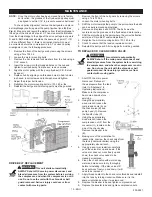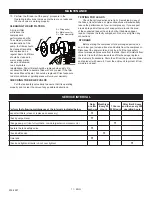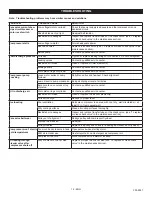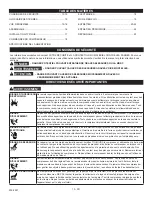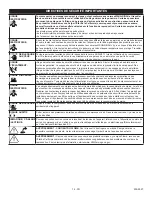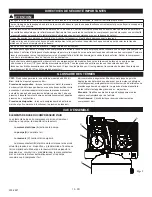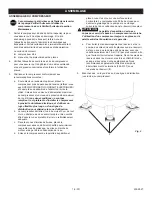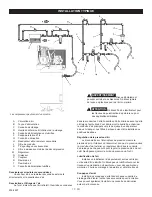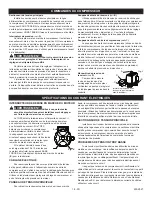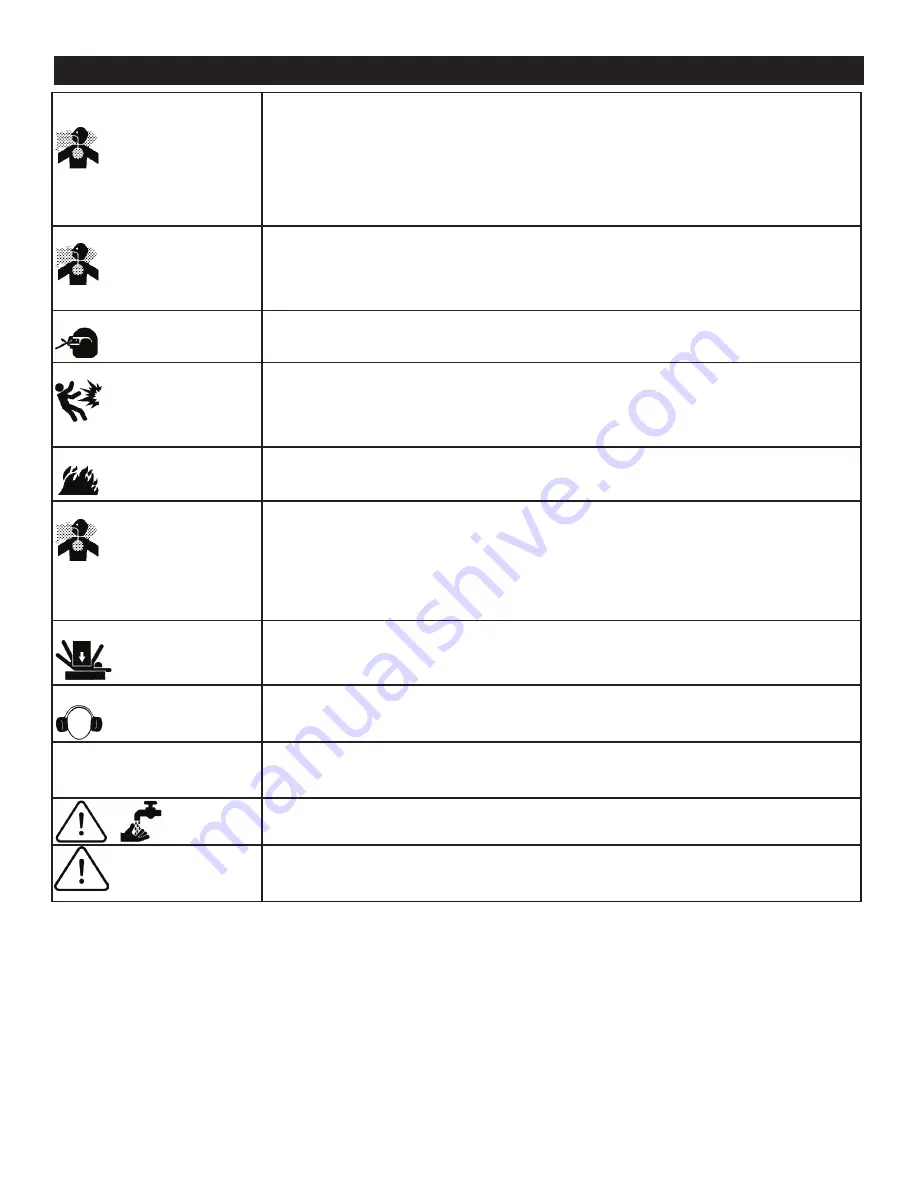
3 - ENG
200-2927
RISK TO BREATHING/
INHALATION HAZARD.
Always wear MSHA/NIOSH approved, properly fitting face mask or respirator and work
in a well ventilated area when using tools that generate dust.
Some dust created by power
sanding, grinding, drilling and other construction activities contains chemicals known (to the State
of California) to cause cancer, birth defects or other reproductive harm. Some examples of these
chemicals are:
•
lead from lead-based paints
•
crystalline silica from bricks and cement and other masonry products
•
arsenic and chromium from chemically treated lumber.
RISK TO BREATHING.
Be certain to read all labels when you are spraying paints or toxic materials, and follow the safety
instructions provided on the label or safety sheets for the materials you are spraying. Use a MSHA/
NIOSH approved respirator mask if there is a chance of inhaling anything you are spraying. Read
all instructions and be sure that your respirator mask will protect you. Work in an area with good
cross ventilation.
RISK OF EYE INJURY.
Always wear ANSI Z87.1 approved safety goggles when using an air compressor. Never point any
nozzle or sprayer toward a person, animal or any part of the body. Equipment can cause serious
injury if the spray penetrates the skin.
RISK OF BURSTING.
•Do not adjust the tank safety valve for any reason. Doing so voids all warranties. The safety valve
has been pre-set at the factory for the maximum pressure of this unit. Personal injury and /or
property damage may result if the relief valve is tampered with.
•Do not use plastic or pvc pipe for compressed air. Use only galvanized steel pipe and fittings for
compressed air distribution lines.
RISK OF FIRE.
Unattended operation of this compressor could result in personal injury or property damage. To
reduce the risk of fire, do not allow the compressor to operate unattended. Always disconnect
electrical power by turning the pressure switch to off and drain the tank daily or after each use.
RISK TO BREATHING.
Air obtained directly from the compressor should never be used to supply air for human
consumption. The air stream may contain carbon monoxide, toxic vapors, or solid particles from
tank. Breathing these contaminant’s can cause serious injury or death. In order to use air produced
by this compressor for breathing, suitable filters and in-line safety equipment must be properly
installed. In-line filters and safety equipment must be properly installed. In-line filters and safety
equipment used in conjunction with the compressor must be capable of treating air to all applicable
local and federal codes prior to human consumption.
RISK OF INJURY.
Always operate the compressor in a stable secure position to prevent accidental movement of the
unit.
RISK TO HEARING.
Always wear hearing protection when using an air compressor. Failure to do so may result in
hearing loss.
NOTE: ELECTRICAL WIRING.
Refer to the air compressor’s serial label for the unit’s voltage and amperage requirements.
Ensure that all wiring is done by a licensed electrician, in accordance with the National Electrical
code.
WARNING: CONTAINS LEAD.
May be harmful if eaten or chewed. May generate dust containing
lead. Wash hands after use. Keep out of reach of children.
WARNING:
This product can expose you to chemicals including Lead, which is known to the State
of California to cause cancer and birth defects or other reproductive harm. For more information go
to www.P65Warnings.ca.gov.
IMPORTANT SAFETY INSTRUCTIONS
Summary of Contents for IV5076055
Page 35: ...200 2927 35 200 2927 NOTES...


